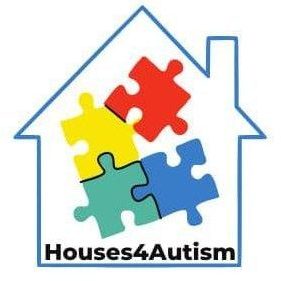Houses4Autism Educational Toolkit
The Houses4Autism project presents a comprehensive educational toolkit, equipping adult educators with the tools to support young adults on the autism spectrum in developing essential life skills for independent living. The toolkit is designed to work in parallel with the Houses4Autism VR game.
There are two main components. A detailed curriculum provides foundational knowledge for adult educators on the basics of VR technology and its use in education, and discusses common challenges associated with independent living and how to manage them. A series of practical lesson plans detail how to deliver this learning content to young adults with autism, aimed at developing independence, autonomy and confidence.
The toolkit is grounded in evidence-based approaches to autism support, drawing from theoretical frameworks including Applied Behaviour Analysis (ABA), cognitive-behavioural interventions, social learning theory, and sensory integration approaches. This foundation acknowledges the diverse needs of individuals on the autism spectrum and incorporates strategies that address executive functioning, social cognition, emotional regulation, and practical skill development.
Click below to download the toolkit in your preferred language:
Overview
The curriculum and lesson plans cover the following chapters:
- Getting Started with VR Headsets – Provides an overview of Virtual Reality technology, its benefits for individuals with ASD, introduction to Oculus Quest 3, setup and safety guidelines, and strategies for integrating VR into learning activities.
- Using VR in Educational Activities – Explores the educational applications of VR technology for individuals with autism, focusing on its benefits, practical uses, and strategies for effective implementation in learning environments.
- Theoretical Understanding of Independent Living – Examines independent living concepts, supportive living options, challenges and barriers, effective programs and strategies, health and community interaction, and the development of resilience and self-determination.
- Managing Social Life and Interaction – Addresses social skills development, common social challenges, evidence-based strategies including Applied Behaviour Analysis and Social Skills Training, building relationships, and developing self-advocacy capabilities.
- Managing Finances – Covers financial independence foundations, budgeting basics, banking and financial services, recognizing financial traps, and building long-term financial security.
- Managing Mental Health – Focuses on understanding mental health in autism, common challenges, evidence-based coping strategies, stress management techniques, and building support networks.
- Managing Daily Life Activities – Provides comprehensive guidance on cooking and meal preparation, cleaning and household maintenance, laundry and clothing care, shopping skills, personal care routines, and transportation.
- Sensory Overload – Educates about sensory processing in autism, recognizing signs of sensory overload, sensory regulation strategies, and creating supportive sensory environments.
- Organisational Skills – Teaches strategies for organizing physical and digital spaces, time management techniques, task prioritization, and developing personalized organizational systems.
- Navigating Services – Covers accessing healthcare services, vocational training and employment support, transportation systems, safety and emergency services, and advocacy skills.
